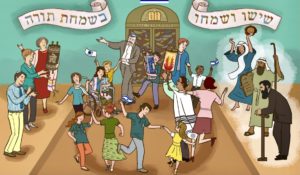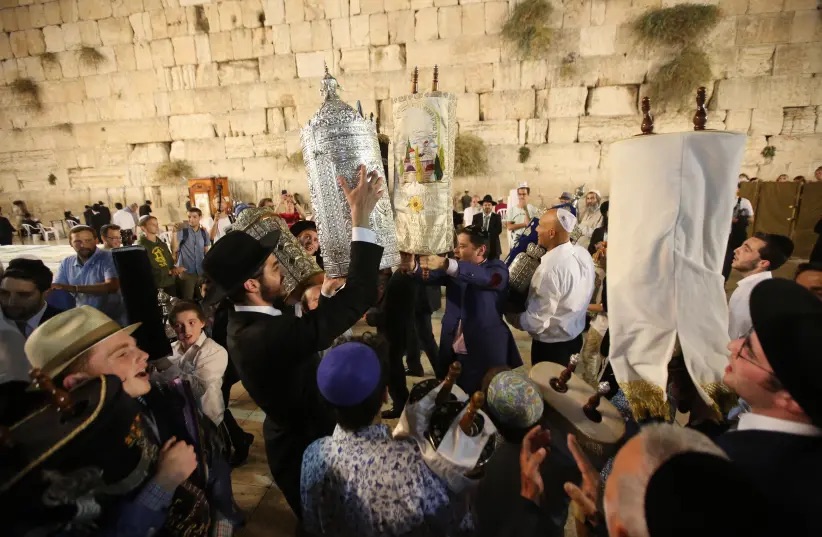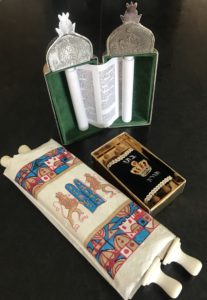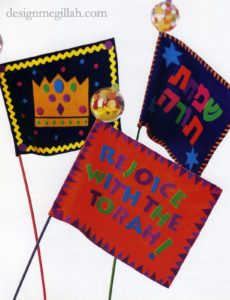Simchat (pronounced ch) Torah literally means ‘Rejoicing of the Law’. It is the yearly celebration of reading the last Parasha (Portion) of the Torah and immediately starting again at the beginning – in this way, one never gets to the end! This community celebration happens in September or October, a week after Sukkot.
Background
During the year in Orthodox Synagogues the whole weekly Torah Parasha will have been read over three morning services, on Shabbat, Mondays and Thursdays.
In Progressive Synagogues, one third of the Parasha will have been read every Shabbat, making a three year cycle. (See Subdivisions within Judaism).
What Happens
At Simchat Torah the last part of Deuteronomy, the last Book of the Torah, is read and the cycle immediately starts again with the first part of Genesis, the first Book.
It is a great honour to be asked to read these last and first portions of the Torah.
Simchat Torah is seen as a symbolic wedding of the Jewish people to the Torah so the people reading the Torah are known as the bride and bridegroom. (In Orthodox Synagogues, only men are allowed to read so they are both known as bridegrooms.) A wedding canopy is often held over the readers whilst the Torah is being read.
Afterwards there is a party-like atmosphere in the Synagogue. All the scrolls, including model versions, are paraded around the synagogue seven times to emulate the seven circles a Jewish bride makes around the bridegroom. (See Life Cycle Events -Jewish Weddings).
Everyone takes turns to carry the scrolls and people wave flags and sing Hebrew songs.

Sweets are often thrown out to the children in celebration- the idea being that learning about Torah is a sweet experience.
In some Synagogues it is customary to call up all children under Bar/Bat Mitzvah age to gather on the Bimah under a Tallit where they are then blessed by the Rabbi.
Summary
Simchat Torah celebrates the annual, unbroken cycle of Torah reading. The joy and love expressed represents the way Jews regard the Holy Book. It is a gift from God, the source of Jewish identity and our ‘guide-book’ through life.


